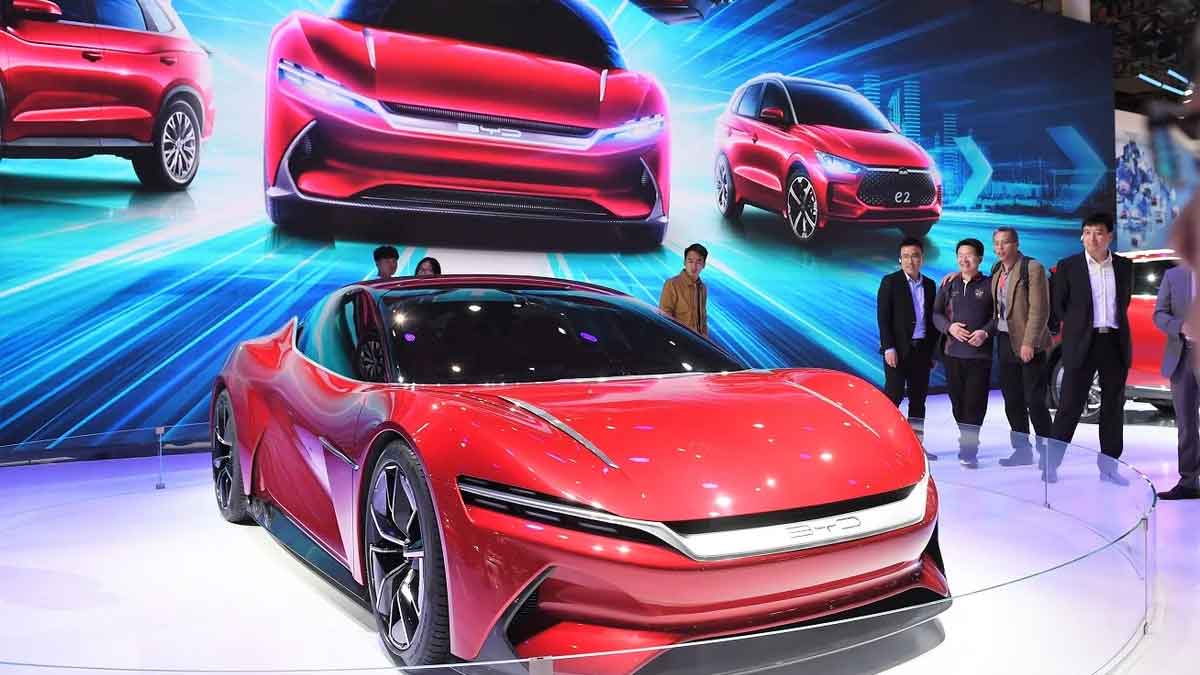The Chinese automaker BYD, which is backed by Warren Buffett’s Berkshire Hathaway, has surpassed Elon Musk’s Tesla as the world’s largest producer of electric vehicles by sales, indicating China’s growing market leadership.
According to company records, BYD, located in Shenzhen, sold 641,000 vehicles in the first half of the year, up more than 300% from the same period last year. This contrasts with the 564,000 vehicles sold by Tesla, which has attributed a challenging second quarter to supply chain and sales difficulties in China following the impact of lockdowns and travel restrictions related to the coronavirus on its operations.
With size and cost advantages across a large portion of the supply chain for batteries, wind and solar energy, and electric vehicles, BYD’s rise highlights China’s expanding dominance in renewable energy.
Regarding BYD’s sales rise, Jeff Chung, an auto analyst at Citigroup, said, “The performance appears remarkable.” Many of BYD’s models are plug-in hybrids, which, according to Chinese sales regulations, are considered “zero emission” vehicles because they employ a huge battery in addition to a conventional engine for extended distances.
Read more: Sony and Honda are collaborating on an electric vehicle to compete with Tesla
BYD, which is partially controlled by Warren Buffett’s Berkshire Hathaway, has also surpassed LG to become the second-largest producer of EV batteries in the world, trailing only Contemporary Amperex Technology, or CATL, in China. BYD has surpassed LG Energy in terms of monthly market share since April, claims Seoul-based SNE Research. This was partially brought on by interruptions at Tesla’s Shanghai facility following a two-month lockdown imposed on China’s most populated city to contain an outbreak of Omicron coronavirus cases.
More severely impacted by the lockdowns than BYD, which profited from the fact that most of its plants are not located in the areas and cities that saw the harshest restrictions, were Chinese EV manufacturers Li Auto, Xpeng, and Nio, along with Tesla.
As Chinese EV makers begin to narrow their focus on export markets, analysts see the rise of China’s domestic auto sector as a forerunner to a tectonic shift in the global auto market. The largest auto market in the world, China, exported more than 500,000 electric vehicles last year, more than twice as many as the year before.
However according to experts at the Mercator Institute for China Studies, a think tank based in Berlin, only 2% of China’s exports to Europe were Chinese-owned European brands, such as Volvo Cars and MG Motor.
Tesla accounted for almost half of the market, with European joint ventures in China accounting for the remaining 14%. However, BYD was “firing on all cylinders,” according to Tu Le, general director of the advisory firm Sino Auto Insights, with models that addressed numerous crucial EV market groups. He anticipated that BYD would soon compete with foreign automakers in their own markets, particularly in the US. He predicted that “they’re going to make some really strong moves to go global.”





















